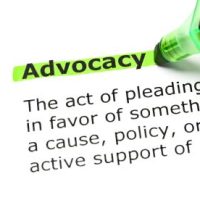When Is Breach of Fiduciary Duty a Crime?

In many criminal cases, the person who accuses the defendant and claims to have suffered physical injury or financial losses because of the defendant’s actions is someone that the defendant knows. Consider that, in many cases involving sexual assault and illegal sexual contact, defendants have known the victims and their families for a long time. Likewise, domestic violence accounts for a considerable portion of violent crime cases, and violent crimes where the alleged victim was a known enemy of the defendant. In many financial crimes, the alleged victim knowingly gave the defendant access to their money, and the question is whether or not the defendant made the alleged fraudulent transaction and whether or not the alleged victim knew about the transaction and consented to it. Here, our Miami white collar crime lawyer explains several common scenarios that can occur when someone who has trusted you to handle their money accuses you of misusing the money for your own financial gain.
What Is Fiduciary Duty?
A fiduciary is someone authorized in an official or professional context to use someone else’s money or have access to someone else’s bank accounts or credit cards. The following are examples of fiduciary relationships:
- Business executives with expense account cards have a fiduciary duty toward the company
- employees who have access to company checking accounts have a fiduciary duty toward their employers, as do cashiers with a key to the cash register drawer
- banks have a fiduciary duty toward customers who hold accounts at the bank
- financial planners have a fiduciary duty toward their clients
- in a power of attorney relationship, the agent (the person authorized to use the money) has a fiduciary duty toward the principal (the owner of the money)
- the trustee of a trust has a fiduciary duty toward the grantor of the trust and its beneficiaries
- the personal representative of a deceased person’s estate has a fiduciary duty toward the estate and its beneficiaries
The duty entails using the money according to the client’s or employer’s instructions, and, when there are no instructions, to use the money in the best interest of the client or employer. In civil law, fiduciary duty is a type of duty of care.
When a fiduciary breaches his or her fiduciary duty, the victim has the right to bring a lawsuit against the fiduciary in civil court. If the court rules against the fiduciary, he or she must repay the money that the victim lost because of the fiduciary’s actions. In some cases, criminal charges might also apply, although there is no specific offense in the legal code called “breach of fiduciary duty.” If you get convicted of a financial crime involving a breach of fiduciary duty, the court may order you to pay restitution, which is to return the money to the victim. Restitution is often part of the sentence for people convicted of crimes where the court can determine the dollar value of the financial losses that the victim suffered.
Breach of Fiduciary Duty and Financial Crime in a Business Context
When employers accuse their employees of stealing from them or defrauding them, embezzlement is the most common charge that applies. Embezzlement can involve physically stealing cash from the employer or writing checks to yourself from the company’s bank account. In some cases, the defendant issues the checks to conspirators or falsifies the company’s records to make it appear that the money went to legitimate business purposes. Depending on the details of the case, charges of conspiracy or money laundering might also apply. If the embezzlement takes place within a complex scheme of financial crime involving multiple parties, RICO Act violations might also be applicable.
Financial Exploitation of Elderly and Vulnerable Adults
Florida recognizes a specific criminal offense known as financial exploitation of an elderly or disabled adult. You can be charged with this crime if you had a power of attorney to make financial decisions on behalf of the vulnerable adult and knowingly caused him or her to suffer financial losses for your own benefit. The charges can also apply if you did not have a power of attorney, but you are a family member or professional caregiver of the alleged victim. If the amount of financial losses exceeds $50,000, the maximum penalty you can face for a conviction is 30 years in prison. The consequences are less severe if the amount of financial losses is less, but they can still include prison time.
Contact Our Financial Crime Defense Attorneys
A South Florida criminal defense lawyer can help you if you are facing criminal charges for a breach of fiduciary duty. Contact Ratzan & Faccidomo in Miami, Florida for a free, confidential consultation about your case.
Source:
leg.state.fl.us/Statutes/index.cfm?App_mode=Display_Statute&URL=0800-0899/0825/Sections/0825.103.html


